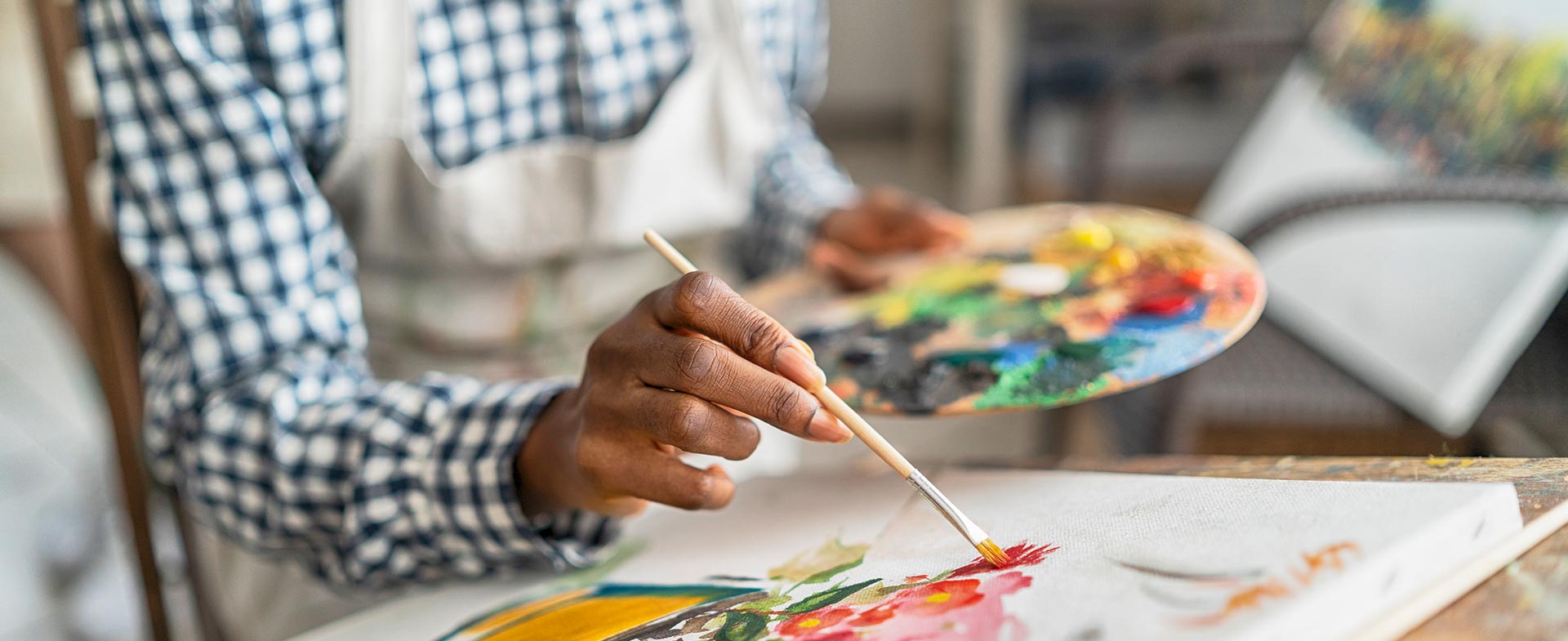You may have heard that meditation and exercise are effective ways to relieve stress, but activities that adults tend to reserve for children are also wonderful ways to lift spirits, live in the moment, and reduce anxiety.
“Play is not just essential for kids—it’s also an important source of relaxation and stimulation for adults,” says Rachel Buzenberg, a therapeutic recreational specialist with Henry Ford Health. “As we get older, we become set in our ways and find it hard to get out of our comfort zones and engage in new, fun activities. But expanding your leisure interests is not only calming, it also helps you to manage stressors and build happiness.”
Improving brain function, expanding creativity, preventing memory loss, decreasing depression, strengthening your relationships with others—these are all wonderful side effects of engaging in play, she adds.
“There’s a theory about human motivation called Maslow’s Hierarchy,” Buzenberg says. “After our most basic survival needs are met (food, water, shelter) our needs revolve around personal growth. Fun activities build self confidence and feelings of accomplishment. When I watch a patient complete an art project or win a friendly game of UNO, I can see the pride they feel. It triggers the release of endorphins and leads to an overall positive sense of well-being, which helps to relieve stress.”
Fun, Stress-Relieving Activities To Try
Need a few ideas to get started? Here are a few fun (and socially distanced) ways to keep calm and bring out your inner child.
- Bake a new recipe. “Self-soothing is a coping skill we teach patients,” Buzenberg says. “It’s about using your five senses to reach a state of relaxation and peace. There are many self-soothing skills involved with baking. Take bread, for example: you’re using the sense of touch when kneading the dough, sight when watching the bread rise, smell when it’s baking, and taste when eating it.”
- Try your hand at art. You don’t have to be a professional. Draw a scene on your driveway with sidewalk chalk, pick up a paintbrush and learn about the different ways to paint (watercolor, acrylic), or simply color in a coloring book. There are actually coloring books specifically for adults with gorgeous nature scenes.
- Complete a puzzle. Get a huge puzzle (we’re talking 1,000 pieces) spread it out on the table or floor and have at it. Along with feelings of accomplishment, puzzles can spark feelings of nostalgia. “When engaging in play that we enjoyed as children, those natural feel-good emotions come back,” Buzenberg says. “It helps to remind us of those carefree times.”
- Play games! If you are quarantined with a group, play games. Bananagrams, Sequence, Pictionary, Codenames, Monopoly, Catch Phrase--any group game will likely promote laughter and togetherness. And if you’re not quarantining with others? Download apps to play virtual games.
- Garden. Spending time in the fresh air helps your body make melatonin, promoting a good night’s sleep, says Buzenberg. (And restful sleep is key for lowering stress.) Planting flowers, herbs or plants and watching them grow is also satisfying to see your hard work flourish. If you live in an apartment building, get some pots and get growing indoors, because merely playing in the dirt can promote feelings of happiness.
These are just a few examples of fun, stress-relieving activities, but whatever interests you is something you should try. And remember that taking a little time for self-care is always important even when our lives are busy or we are going through difficult times.
“I never ask my patients what’s the matter, but instead I ask what matters to them,” Buzenberg says. “Your hobbies and interests are very important to your mental health. There’s something recreational therapists call Flow Theory. Think of a time you so fully engaged in an activity that you lost track of time and forgot about everything around you. That is flow. Once you become immersed in an activity that tests your skills (but isn’t overwhelming) your attention is completely devoted to that one fun activity. You are then awarded with a sense of accomplishment from doing something you truly enjoy.”
To make an appointment with a Henry Ford doctor or therapist, call 1-800-436-7936. Learn more about virtual care options and our commitment to safety.
Rachel Buzenberg is a certified therapeutic recreation specialist at Henry Ford Kingswood Hospital.



